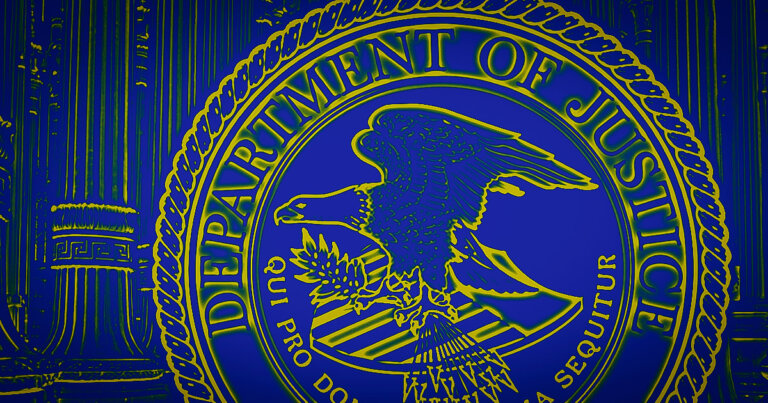 DOJ launches probe into Block’s compliance history following allegations of lapses
DOJ launches probe into Block’s compliance history following allegations of lapses DOJ launches probe into Block’s compliance history following allegations of lapses
Federal prosecutors launched the probe after a former employee disclosed numerous lapses in the company's transaction monitoring systems.

Cover art/illustration via CryptoSlate. Image includes combined content which may include AI-generated content.
Fintech giant Block is under scrutiny by federal prosecutors from the Southern District of New York following allegations of significant compliance failures involving its main business units — Square and Cash App, NBC News reported on May 1.
Federal prosecutors launched the probe after a former employee disclosed numerous lapses in the company’s transaction monitoring systems.
According to sources familiar with the matter, the former employee provided federal prosecutors with internal documents indicating that Square processed transactions with entities in nations under US sanctions, such as Cuba, Iran, Russia, and Venezuela.
Additionally, the documents allege that Block facilitated multiple crypto transactions for groups linked to terrorism, with these activities essentially going unreported to government agencies as mandated by law.
According to the report, the former employee alleged that Square and Cash App failed to collect and assess customer information adequately, hindering proper risk assessment. The former employee also claims the firm failed to rectify its procedures even after becoming aware of the breaches.
Multiple alleged failures
Block’s Square business unit allegedly failed to conduct customer due diligence on international merchant sellers and wrongfully reimbursed funds frozen for sanctions violations.
Furthermore, Block allowed new customers of Square and the consumer-focused service Cash App to transact even after they triggered sanctions alerts.
Square allegedly handled transactions involving entities in sanctioned countries, including Cuba, Iran, Russia, and Venezuela. Meanwhile, Block allegedly handled crypto transactions for terrorist groups.
The transactions were executed via credit cards, cash, and Bitcoin.
Block allegedly did not report the relevant transactions to the US government as required and did not correct its practices when alerted of the issues. Block’s senior management and board of directors supposedly knew of the various compliance failures.
Block also allegedly failed to collect sufficient information from Square and Cash App customers for risk assessment purposes. An outside consultant found nearly 50 deficiencies in Block’s internal systems, used for monitoring suspicious activity, rating customer risk, and screening sanctions violations.
Internal upheaval
A spokesperson for Block said the company has a “responsible and extensive compliance program,” and it “continually” addresses “emerging threats” and regulatory issues. Block also stated that its decision to hire an outside consultant demonstrates its commitment to compliance and said that 50 deficiencies are “not unusual.”
The firm also told the news outlet that it had already voluntarily reported thousands of the questionable transactions flagged by the former employee to the Office of Foreign Assets Control (OFAC), which later issued a no-action letter indicating that the regulator would not pursue administrative action against the firm.
However, the former employee claims the company failed to report “thousands” of other transactions.
According to NBC, the revelations have led to significant internal upheaval within Block, with recent announcements of unexpected board member departures further stirring concerns about the company’s governance and compliance culture.
Federal regulators and law enforcement continue to monitor the situation closely, as further investigations could lead to substantial penalties and necessitate comprehensive reforms within the company’s operations.
Alongside its support for traditional payments, Block is known for its extensive work with crypto. The company’s Cash App features support for Bitcoin, and it recently launched the Bitkey hardware wallet. It also has a crypto-mining initiative underway.













































































































